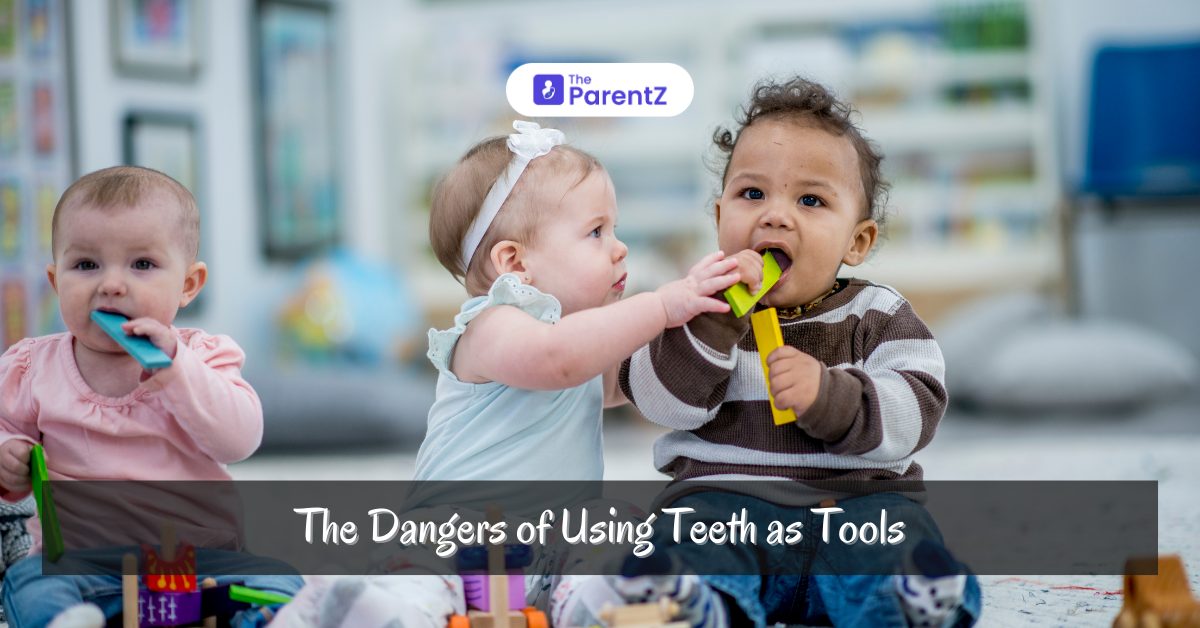Your teeth are designed for one main purpose: to chew food. However, many people use them for a variety of tasks that can cause serious and lasting damage. From opening packages to cutting tape, using teeth as tools might seem convenient at the moment, but the long-term risks to your dental health far outweigh the convenience.
Common Situations Where Teeth Are Used as Tools
There are numerous instances where people use their teeth as makeshift tools, often without realizing the potential harm. Some of the most common scenarios include:
1. Opening Packages
Many people resort to tearing open plastic or cardboard packaging with their teeth when scissors or a knife isn't readily available.
2. Cutting Tape or String
In moments of convenience, people often bite through tape or string instead of finding scissors.
3. Biting Off Tags
Cutting off tags from new clothes or items might seem easier when done with your teeth, but it's a bad habit that can quickly become damaging.
4. Cracking Open Nuts or Bottles
While this may seem obvious, some still use their teeth to crack open nutshells or even twist open bottle caps, both of which are recipes for disaster.
5. Holding Objects
People sometimes use their teeth to hold onto objects, such as keys or bobby pins, when their hands are full. This may seem harmless, but it can lead to significant damage over time.
The Harmful Effects of Using Teeth as Tools
Misusing your teeth can cause a wide range of dental problems, from minor chips to serious fractures. Here are the key risks associated with using your teeth as tools:
1. Chipped or Fractured Teeth
Teeth are not as strong as you might think. Using them to tear or cut objects can easily cause chips or fractures. A chipped tooth may require dental bonding, while a fractured tooth might need more extensive treatment such as a crown or even extraction.
2. Tooth Enamel Damage
Your enamel is the protective layer of your teeth. When you bite into hard or rough objects, you can wear down or crack this enamel, making your teeth more vulnerable to decay and sensitivity.
3. Jaw Strain and TMJ Issues
Using your teeth to perform tasks that require strength, such as opening a package or biting through a hard material, can put excessive pressure on your jaw. This can lead to strain or even temporomandibular joint (TMJ) disorders, causing pain, discomfort, and limited jaw movement.
4. Gum Injuries and Infections
When using your teeth to open objects or bite through things, you risk cutting or injuring your gums. This can lead to infections, which, if left untreated, can result in more serious dental issues such as abscesses.
5. Increased Risk of Tooth Decay
As you wear down your enamel through misuse, your teeth become more susceptible to cavities and decay. A weakened enamel layer is less effective at protecting against bacteria, leading to a higher risk of tooth decay.
How to Break the Habit
While it may be tempting to continue using your teeth for non-eating tasks, it's important to break this habit. Here are some tips on how to protect your teeth from unnecessary damage:
1. Always Keep Scissors or Tools Handy
To avoid using your teeth, make sure you have scissors, utility knives, or other tools nearby for cutting or opening objects.
2. Be Mindful of Your Actions
Many people use their teeth as tools unconsciously. Try to be more aware of what you're doing and make a conscious effort to stop the behavior.
3. Educate Family and Friends
If you see a friend or family member using their teeth as tools, gently remind them of the potential risks. Encouraging those around you to practice better habits can help you stay committed as well.
4. Carry Small Tools with You
If you find yourself frequently needing to open packages or cut items while on the go, consider carrying a small pair of scissors or a multi-tool with you.
Conclusion
Using your teeth as tools might seem like a small, convenient action, but the risks to your dental health are significant. Chipped teeth, enamel damage, jaw strain, and gum injuries are just a few of the potential consequences. By being mindful of how you use your teeth and keeping proper tools nearby, you can prevent serious dental issues and keep your smile healthy for years to come.
Stop using your teeth as tools today—your smile will thank you!





Be the first one to comment on this story.